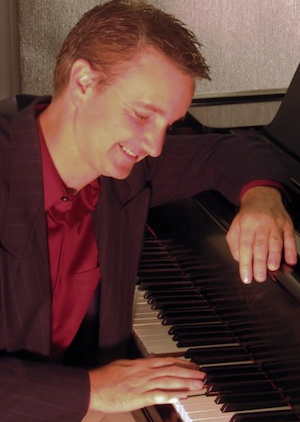By Dean Kaelin


I think one of the greatest lies that has been told to singers is that they have a break and there is nothing they can do about it! So the singer spends a lot of time avoiding the break or sneaking around it, changing keys, and adjusting notes. Or worse yet, singing entirely over the break or entirely under it.
I started vocalizing my oldest daughter when she was five years old. She never knew the feeling of a break in her voice! She sang almost constantly—high, hard, powerful. She never had any vocal problems even though she was singing demanding styles and singing aggressively and frequently. She sang all styles—pop, musical theater, classical, gospel, soul. She had leads in musicals, placed well in classical competitions, sang in pop shows, and sang with Jazz bands.
Then at the age of 19 she decided to follow her dreams and went off to Broadway. She was young and nervous, so she enrolled in a rather prestigious Theater Arts college in Manhattan. She hoped this would help her adjust to life in New York and hopefully at the same time teach her things that would help her when she started to audition for shows.
So of course they assign her a voice teacher and she goes in for her first voice lesson. Her teacher took her through a few warm ups and then said, “You don’t have a break in your voice!” She answered, “No. I’ve never had a break in my voice.” He asked her, “What does that feel like?” She tried to describe what it felt like, but it was quite difficult for her because she had never known any other feeling and had nothing to compare it to. Apparently, he just thought she was some kind of a “freak” because EVERYBODY has a break in their voice. So, since she didn’t have a break in her voice, something must be unique about her.
Now, the real problem is that he was supposed to teach her for the next 10 weeks. So what does he do? He tells her he thinks it’s great that she doesn’t have a break and then tells her to do all the same things he tells all of his other students to do. “Let’s work on breathing. Now let’s throw the sound back behind the soft palate. Now let’s “lift” the soft palate and put the sound “in the mask”. Now let’s “smile” on those high notes.” Two weeks later she calls me up in tears, scared to death because for the first time in her life she felt a “break” in her voice! I actually warned her before she moved to New York to be careful, but when you are trying to please a teacher and you are doing it for a grade, it is very difficult not to do what your teacher tells you to do. Here was a girl who had sung for over sixteen years and had never experienced the feeling of a break and he helped her get one in two weeks!
I can attest that my daughter is not strange or a “freak”. (No more than most Musical Theater performers are—haha.) In fact, I can produce hundreds of students I have worked with over the years who don’t have breaks in their voices! And the vast majority walked through my door with a “break”. When I ask potential students the first time I meet them when they first walk through my door why they have come to see me, the answer I hear most frequently is “I want to be able to sing from my low voice to my high voice without changing voices.” Or, “I want to be able to sing high and strong without hurting my voice or without flipping into falsetto.”
The very reason that I am a voice teacher was because all I knew about singing when I was a teenager was that if I yelled louder I got a higher note. I would sing for a three hour performance all through junior high and high school and have no voice by the end of the night because I had been screaming. My goal when I was eighteen was to get a falsetto because I had no upper range at all. (I probably at least had nodules if not worse, but I knew so little about the voice that I didn’t even know what nodules were!) When I listened to my favorite singers they seemed to be able to sing high without yelling and hurting their voice, but without flipping into a light, airy voice so I figured it must be possible and I was going to try and figure out how to do it.
If singers were told this one simple truth, so much frustration would be avoided. “You DON’T inherently have a break in your voice. You just have places where you are more likely to break. If your vocal cords stay together as you go through those transitions, or passageways, and allow your vocal cords to make the necessary adjustments to get the higher pitch, you will not have a break!”
To finish the story, after one semester I encouraged my daughter to drop out of school now that she was used to New York and could find her way around, get an apartment, and start auditioning. She was nervous, but I convinced her she was ready. To make a long story short, she went to her first Broadway audition. The national touring company of ‘Oklahoma’ was looking for an understudy to the lead, a part she had played in junior high. When she sang her audition song the director said, Wow! I’ve never heard anybody belt a high G before! (When she told me the story I said, “You didn’t tell him that you weren’t belting did you?” She said, “No”. I said, “Good. Let them think whatever they want to think.”) He heard her sing the high G, but he didn’t hear her “switch” into a different voice, so he just assumed she was pulling up her chest voice because he didn’t hear her go to her “classical” voice on the high note like most of the girls do. And after a few call backs out of 650 girls that came to that first open audition, she got the role of the understudy to the lead of the National touring company of ‘Oklahoma’ at the age of 19 at her very first Broadway audition because she didn’t have a break!
This is the mission of Mix: to help erase the “great lie” that all singers have a break and there is nothing you can do about it.

